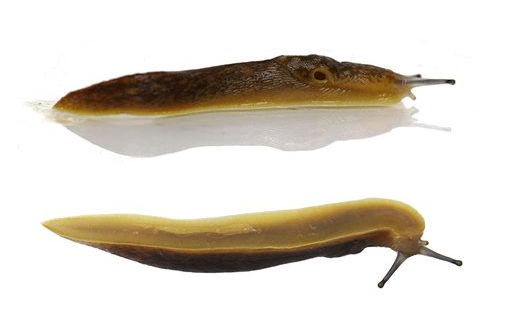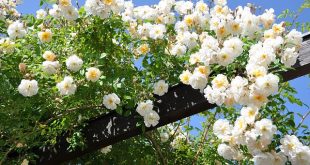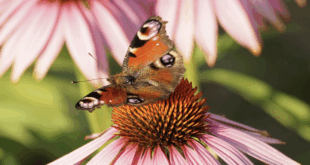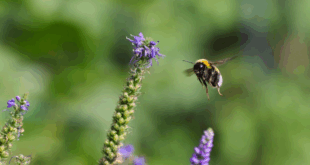Slug mayday: RHS predicts perfect storm as number one garden pest and seedlings appear
The Royal Horticultural Society (RHS) is warning of a perfect storm this weekend as warmer weather and scattered showers sees slugs and snails re-emerge in gardens just as vulnerable new plants are unfurling.
Late frosts in spring had largely kept gastropods at bay, but recent changes in the weather has meant their return now overlaps with the raising of delicate seedlings and fresh shoots on herbaceous and perennial plants much-loved by slugs, such as hostas, sweet peas and beans.
Amid National Gardening Week (Monday 26th April – Sunday 2nd May) gardeners are being reminded to be alert and provide adequate protection to those plants most at risk while also taking the opportunity to learn more about the role of slugs and snails in our gardens.
Hayley Jones, entomologist at the RHS, said: “Slugs and snails frequently top our pest complaints list but play a valuable role in the healthy functioning of our gardens. Of the more than 40 known species of slug in the UK only a minority – around nine species – are major plant nibblers. The majority are busy at work decomposing waste material. Taking the time this spring to better understand the part they have to play on your plot could result in an even greener and healthier garden.”
To help plants weather slugs and snails it is recommended that gardeners grow them in such a way that they can tolerate some damage, reduce gastropod prevalence by hoeing and weeding and use nematode controls – natural parasitic enemies of slugs – if the problem persists. Top tips include:
- Raising young plants in 7-9cm pots that can withstand some grazing rather than as delicate seedlings in cell-trays that are then transplanted.
- Inspecting plants by torchlight to catch the culprits in the act and removing them, keeping an eye out for the small grey slugs that are often the biggest offenders. Relocate to a compost heap if available.
- Encouraging birds, frogs and hedgehogs into gardens who will help keep numbers at bay.
- Consider growing robust shrubs or perennials that slugs and snails are known to shun including Euphorbia, Bleeding heart, Fuchsia, Geranium and Salvia.
For more information about slugs and snails in gardens and the plants they least prefer visit: www.rhs.org.uk
The RHS Science team is currently conducting four different research projects on slugs and snails, including mapping the yellow cellar slug and studying nematode control treatments. The 100-strong team will move to RHS Hilltop, the new home of gardening science, at RHS Garden Wisley which opens to the public on 24th June. For more information visit: www.rhs.org.uk/hilltop
 Gardeners Club The Gardeners Club is a free to join online club for everyone with an interest in gardening and gardens.
Gardeners Club The Gardeners Club is a free to join online club for everyone with an interest in gardening and gardens.






